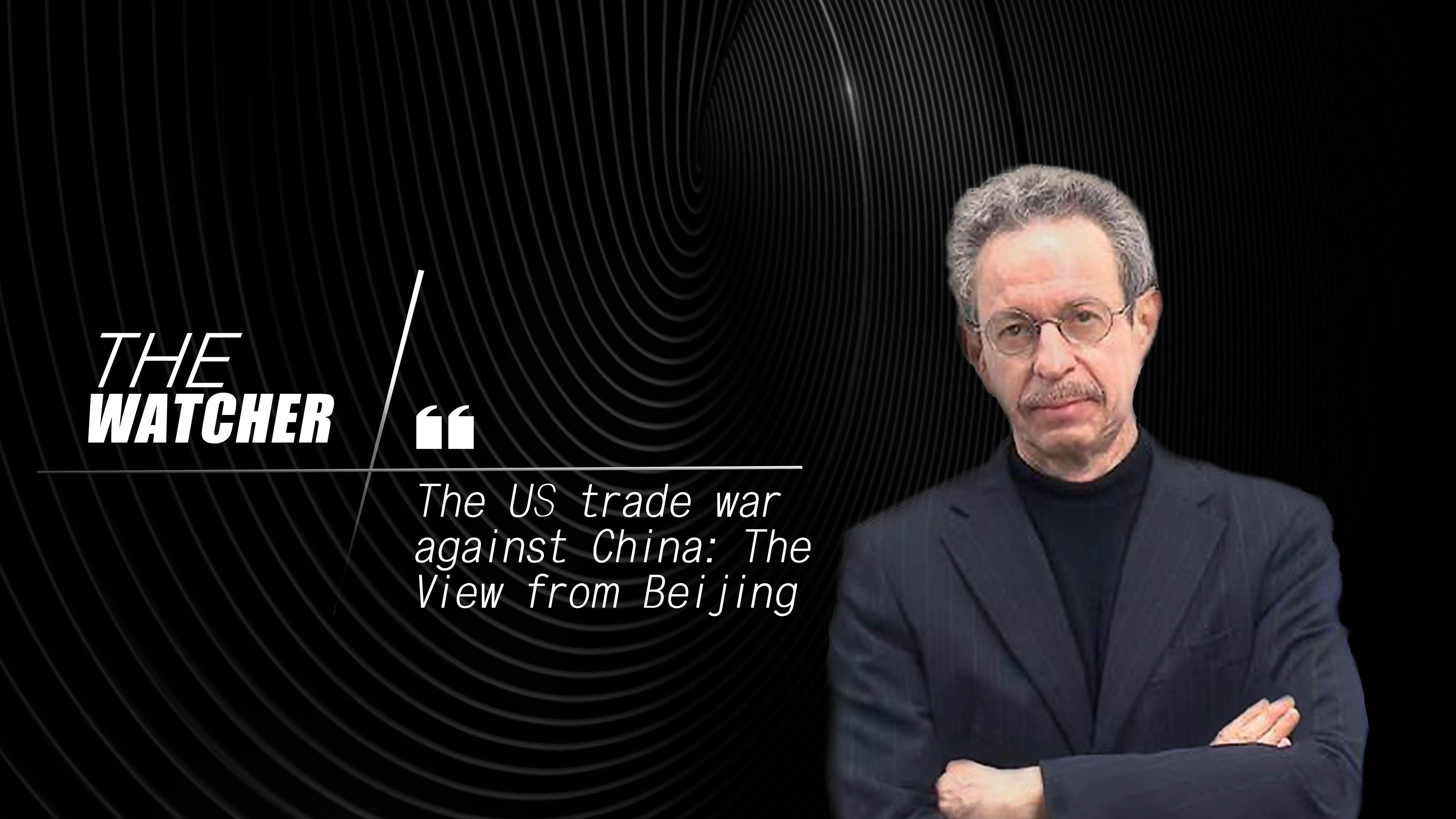
Opinions
22:38, 21-Jul-2018
The Watcher: The US trade war against China: The view from Beijing
Updated
21:51, 24-Jul-2018
Robert L. Kuhn
04:40

I’m Robert Lawrence Kuhn and here’s what I’m watching: the United States launching a trade war against China.
I’m an American and I happen to be in Beijing when President Trump triggered his tariffs. I know all the major American attitudes, opinions, analyses, there are a lot of them.
But I’m not sure I know the Chinese position in detail. I should know. The first step in resolving disputes is to understand thoroughly the other side’s specific positions and ways of thinking.
So, from China’s perspective, why did Trump start the trade war against China? Is it just the trade deficit, that simple negative number, or are there deeper reasons, like to thwart China’s rise? More deeply, I’d like to get, again from China’s perspective, a list of US motivations, objectives, goals, what does the US hope to achieve?
The US levied tariffs first. Few deny that the US started it. Well, some say that China started the trade war years ago, and that the US is only now, finally, starting to fight back. But that’s another matter.
China asserted it would not fire the first shot, accusing the US of starting "the biggest trade war in economic history." Most importantly, can the US and China find common ground? Is there an “off ramp,” as it were, as the world’s two largest economies, speeding on this economic superhighway, accelerate in the wrong direction?
Let’s start with President Trump, to whom the US struggle with China has always been about trade deficits – about 375 billion US dollars in 2017, according to US government data. But a country’s exports and imports are not like, say, a real estate company’s revenues and expenses. Trade balances are complex.
Some Chinese products are produced by foreign-owned companies in China, including American companies, which capture profits from goods counted as Chinese exports. The deficit doesn't include the US’ 38.5 billion US dollar trade surplus with China in services, where the US received more money than it spent, such as for travel, Chinese tourists and students in the US.
Moreover, a trade deficit means Americans are enjoying a higher standard of living with more products at cheaper prices, financed in part by China buying US government debt. I’m not saying a trade deficit is sustainable, but I am saying a trade deficit isn’t simple.
My advice for the US: Recognize that China seeks to develop its country to benefit its people, what’s wrong with that? Not seeks to replace the US as the global leader. The US needs to make clear, with specifics and consistency, what it’s really after, because while Trump talks trade deficits, almost no one else does.
But yet, while most leading members of both political parties, Republicans as well as Democrats, reject Trump’s tariffs for economic reasons, and do not like Trump for personal reasons, they still support getting tough with China. It might be useful to find out why.
China is no longer the developing country it was when entering the WTO in 2001 and looser rules were allowed to protect nascent industries.
China might seek common ground with mainstream US policymakers and analysts who vehemently oppose Trump’s tariffs – and who do not oppose China’s rise – but who now genuinely feel that China should open its markets faster and protect intellectual property rights better – prescriptions that, quite separately from the trade war, many Chinese economists argue would be in China’s best interest.
China will never succumb to foreign force. But China will continue to reform. I’m keeping watch. I’m Robert Lawrence Kuhn.

SITEMAP
Copyright © 2018 CGTN. Beijing ICP prepared NO.16065310-3
Copyright © 2018 CGTN. Beijing ICP prepared NO.16065310-3